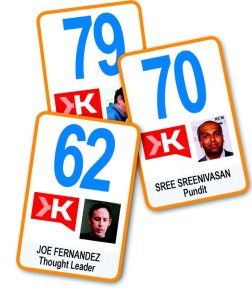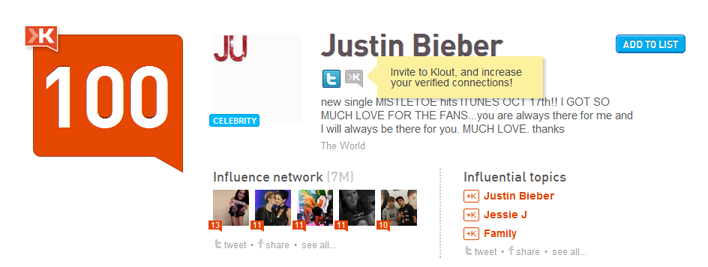 When Google+ was released to the public on Sept. 20, 2011, it instantly became the hottest social networking site ever to grace the web. While Google+ set new records for being the fastest growing social networking site ever to reach 10 million users, when beta was lifted and it was released to the public, the numbers climbed even quicker. In the two days after Google+ went public, another 9 million people created accounts. Google+ now has more than 40 million users.
When Google+ was released to the public on Sept. 20, 2011, it instantly became the hottest social networking site ever to grace the web. While Google+ set new records for being the fastest growing social networking site ever to reach 10 million users, when beta was lifted and it was released to the public, the numbers climbed even quicker. In the two days after Google+ went public, another 9 million people created accounts. Google+ now has more than 40 million users.
While Google+ is nowhere near Facebook’s nearly 800 million users, many social media ‘experts’ view Google+ as a ‘game changer’ and one that will be around for the long haul. However, many critics view Google+ as being too much like Facebook and argue the site is too difficult to share content and easily build your online presence. Many have referred to Google+ as a social media ‘ghost town‘ with nothing but tumble weeds and social media geeks roaming around like zombies.
With today being Halloween, I present to you the top five social media ghost towns:
![]() MySpace is probably the first site to come to mind when thinking of failed social networking sites. Once Facebook’s biggest competitor, MySpace slowly went from being a cool site with more freedom than Facebook to one reserved for tweens. MySpace now considers itself a ‘social entertainment’ site.
MySpace is probably the first site to come to mind when thinking of failed social networking sites. Once Facebook’s biggest competitor, MySpace slowly went from being a cool site with more freedom than Facebook to one reserved for tweens. MySpace now considers itself a ‘social entertainment’ site.
Launched in 2002, Friendster was the first known online social networking site. When Facebook came around, it lost its luster in the U.S. and was sold to Malaysian company MOL global in 2009. The site has since been re-positioned as a social gaming site.

Orkut is another social networking site launched by Google in 2004. Still owned and operated by Google, the site is now one of the most visited sites in India and Brazil. Oddly, Orkut’s logo still maintains ‘beta’ in it’s logo. Also, the current layout and design resembles that of Google+.

Bebo is a site that just never really gained any traction. Originally launched by a husband and wife duo in 2005, Bebo was later purchased by AOL in 2008. AOL had little luck with the site and turned it over to Criterion Capitol Partners last year. I think I might have an account set up, not sure.
 Possibly my favorite social media ghost town, hi5 was launched around the same time Facebook was making its way across college campuses. I remember using the site to post stupid pictures and wish people happy birthday. Still independently owned, hi5 probably met its demise from the inability to control spammy content (at least, that’s why I closed my account). A quick glance at the homepage now reveals it has since re-positioned itself as a social gaming site.
Possibly my favorite social media ghost town, hi5 was launched around the same time Facebook was making its way across college campuses. I remember using the site to post stupid pictures and wish people happy birthday. Still independently owned, hi5 probably met its demise from the inability to control spammy content (at least, that’s why I closed my account). A quick glance at the homepage now reveals it has since re-positioned itself as a social gaming site.




